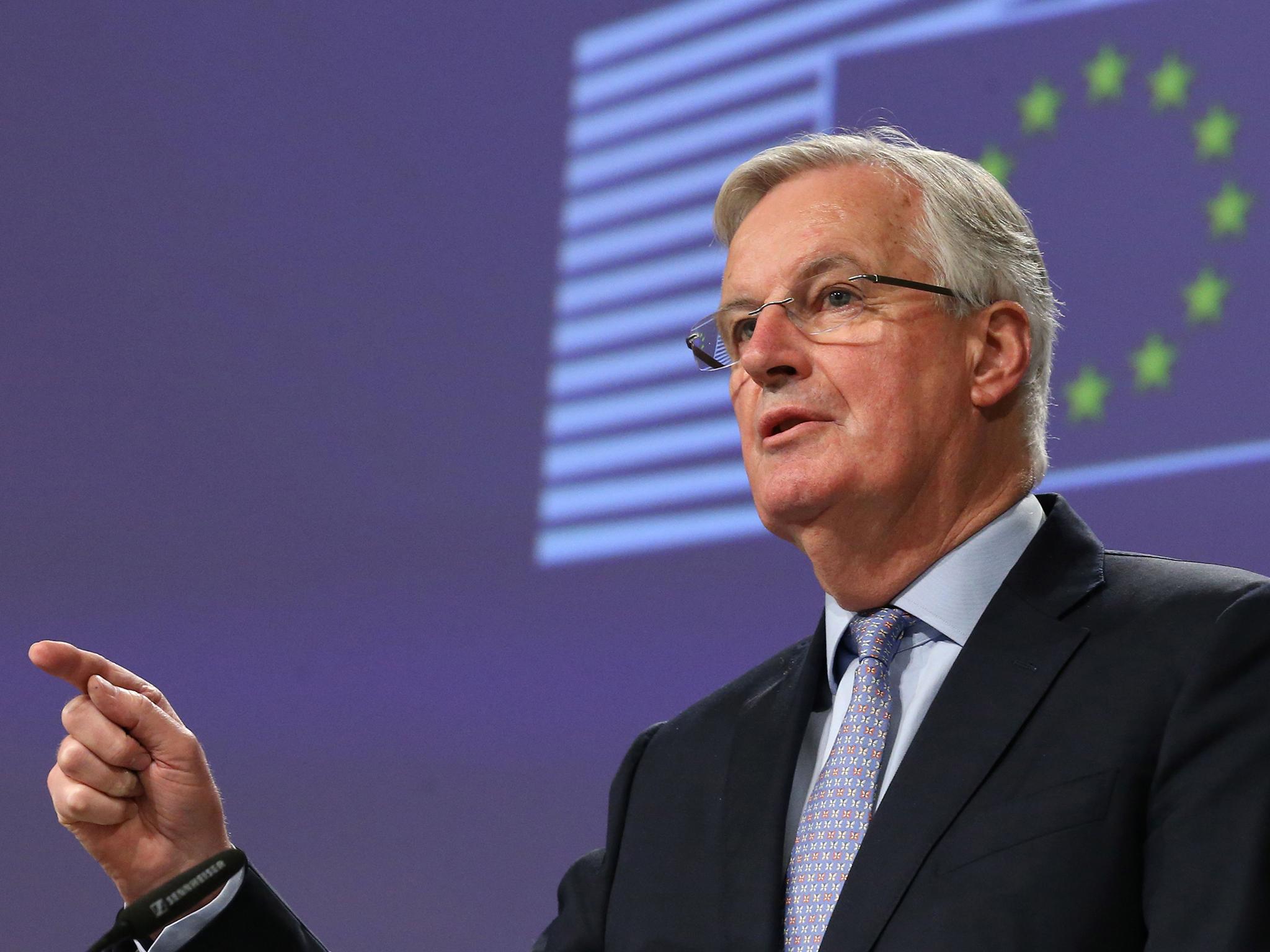Brexit trade talks kick off in Brussels with plenty of hand sanitiser
Analysis: Negotiators are far from a handshake for all sorts of reasons, finds Jon Stone


Brexit talks are back, and they’re bigger than ever – literally. The second phase of negotiations, on trade, involves so many officials that the EU has had to rent a conference space on the edge of Brussels’ historic centre to house all 250 people needed.
At one stage this week around 10 working groups were taking place at the same time – the intensity of discussions down to the fact that Boris Johnson has set himself a deadline of the end of the year. Trade negotiators normally take years to reach consensus; it is yet to be seen how they will adapt to hard deadlines.
Given the global epidemiological circumstances, the large number of bureaucrats and negotiators converging in one place has presented a few challenges. Sources close to negotiations in Brussels were keen stress that officials had been given plenty of hand sanitiser, to avoid giving each other coronavirus. Symbolically, there was no handshake for cameras on the first day.
But negotiators will have been on particularly high alert for viruses from Wednesday, when news broke of the first case of Covid-19 in the EU institutions. The infected person had notably managed to attend a number of meetings with other officials before they were diagnosed – but as far as we know, the talks are so far coronavirus-free.
Speaking on Thursday Michel Barnier was cautious about discussions continuing if the situation turned into a true pandemic. The chief negotiator said he didn’t want to “commit” to anything, but reminded reporters that “there’s no ban on meetings”. Yet, anyway. Whispers that the viral outbreak could be used as a pretext to extend talks were immediately dismissed by Downing Street back in Westminster.
As the March rain crashed down on the Belgian capital on Thursday, both sides were more or less agreed on what the problems to be solved are. They are, of course, still very far apart on the solutions to those problems.
First, there is a dispute about whether they are negotiating one big overarching agreement (which the EU wants) or lots of smaller agreements (which the UK wants). Secondly, there’s the extent to which the EU and UK will be able to cooperating on criminal justice without Britain making an explicit commitment to stay in the European Court of Human Rights. Then there’s the issue of fisheries – how much access will EU fleets get. The EU wants to stay as close to the status quo as possible, the UK wants more control. And of course, the issue of the level playing field – how tied to EU rules the UK is, and whether the European Court of Justice has much say over them.
One senior UK official close to talks described the difference between the two sides as “no surprise” – and they are right; this is the first week of talks and of course there will be things to work through. But these really are big issues: each one with the potential to be as disruptive as Northern Ireland was in the first round of talks, but with an even tighter deadline.
In two weeks negotiators will meet again, this time in London – assuming there’s still no ban on meetings.
Join our commenting forum
Join thought-provoking conversations, follow other Independent readers and see their replies
Comments
Bookmark popover
Removed from bookmarks